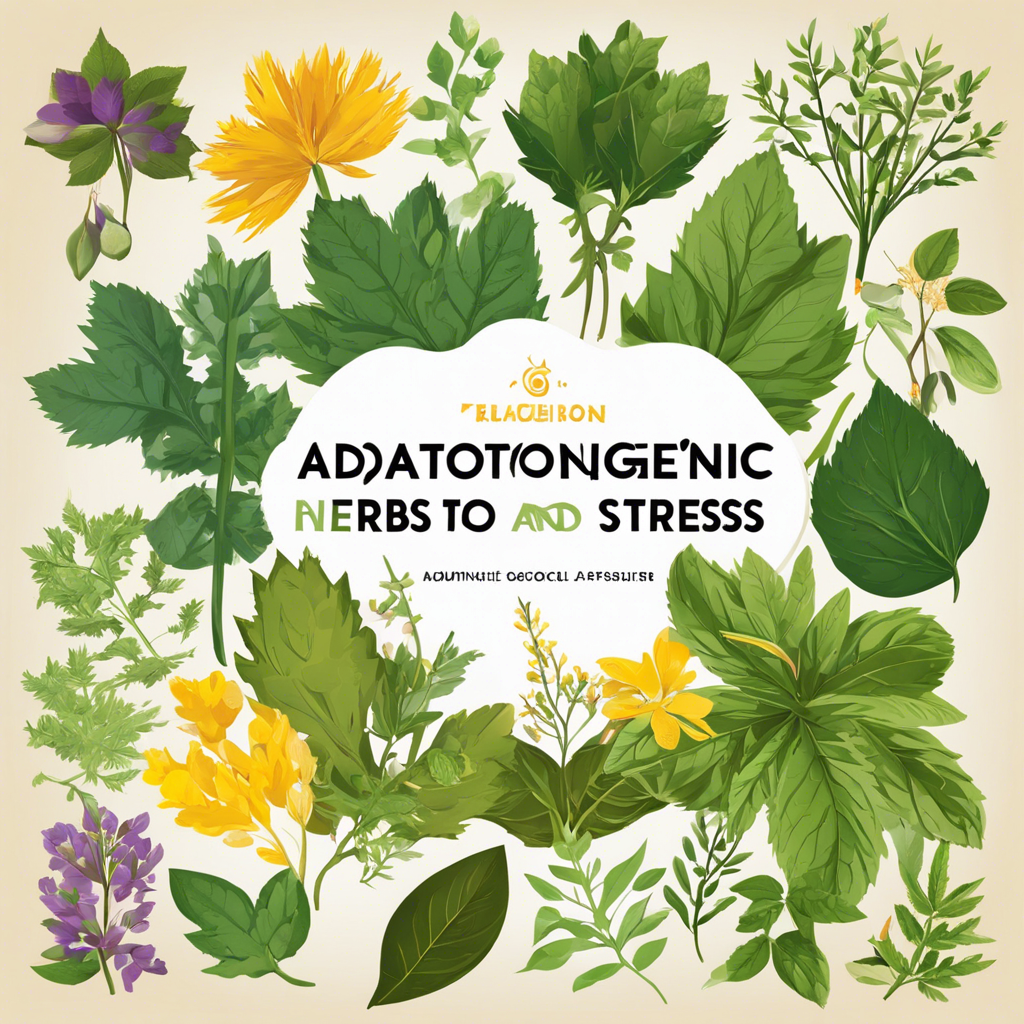The demanding nature of modern life often leaves individuals feeling stressed and fatigued. Long work hours, busy schedules, and constant pressure to stay connected can take a toll on our mental and physical health. Thankfully, nature offers a helping hand in the form of adaptogenic herbs – natural substances that help the body adapt to stress and promote overall well-being.
Adaptogens have been used for centuries in traditional medicinal practices like Ayurveda and Chinese medicine. Herbs such as ginseng, ashwagandha, rhodiola, and holy basil are well-known adaptogens that have stood the test of time. These plants work by supporting the body’s homeostatic mechanisms, helping to regulate stress responses and bringing balance to various bodily functions.
Scientific studies back up the ancient wisdom surrounding adaptogens. Research shows that these herbs can positively impact the body’s hypothalamic-pituitary-adrenal (HPA) axis, which plays a critical role in managing stress. Adaptogens have been found to reduce the production of stress hormones like cortisol and increase the availability of neurotransmitters that promote a sense of calm and relaxation.
For example, ashwagandha, a prominent herb in Ayurvedic medicine, has been shown in studies to significantly reduce stress and anxiety levels in adults. Similarly, rhodiola, used in traditional Chinese and Siberian medicine, has been found to improve mood, decrease fatigue, and enhance cognitive function in individuals experiencing stress.
Adaptogenic herbs don’t just address mental fatigue; they also provide a boost to physical stamina and endurance. Athletes and active individuals have long used adaptogens to enhance performance and speed up recovery. For instance, ginseng is known to increase energy levels and reduce the perception of exertion during exercise, while cordyceps, a type of fungus used in traditional Chinese medicine, has been shown to improve athletic performance and reduce fatigue.
The benefits of adaptogens extend beyond stress relief and increased energy. Many adaptogenic herbs possess potent antioxidant and anti-inflammatory properties, offering protection against the damaging effects of free radicals and supporting overall cellular health. Additionally, adaptogens can help regulate immune function, enhance cognitive performance, and promote healthy sleep patterns, all of which contribute to a stronger, more resilient body.
With their wide range of benefits, it’s no surprise that adaptogenic herbs are gaining popularity as a natural way to combat the negative effects of stress and fatigue. However, it’s important to remember that they are not a quick fix; adaptogens work gradually and are most effective when taken consistently over time. Working with a knowledgeable healthcare provider can ensure that individuals receive the right guidance on which adaptogens to use and how to incorporate them into their daily routines for optimal results.
When using adaptogenic herbs, it’s recommended to start with small doses and gradually increase them to assess tolerance. While generally safe, some individuals may experience mild side effects, especially if they take excessive amounts. As with any supplement, it’s important to purchase adaptogens from reputable sources that provide high-quality, pure products free from contaminants or fillers.
Incorporating adaptogenic herbs into your daily routine can be easy and versatile. Many adaptogens come in powder or tincture form and can be added to beverages, smoothies, or meals. Some adaptogenic mushrooms, like reishi and lion’s mane, can be consumed as tea or taken in supplement form. Individuals can choose the adaptogens that align with their specific needs and incorporate them in ways that fit their lifestyle and preferences.
Nature has provided a powerful toolkit in the form of adaptogenic herbs to help us manage stress and fatigue more effectively. By harnessing the power of these botanical allies, we can take a natural, holistic approach to supporting our health and well-being.
